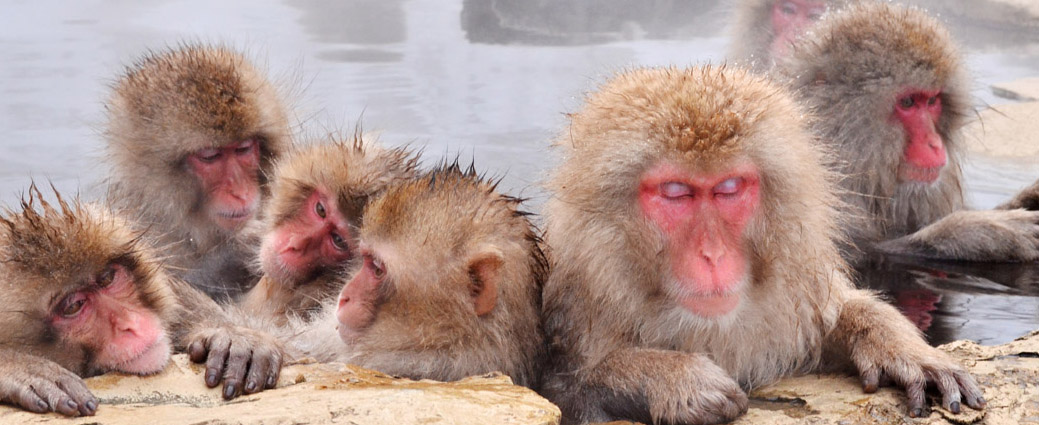Jigokudani Monkey Park
Category: Outdoor activities Tags: hot springs, jigokudani, monkeys, onsen, yudanaka
While Japanese macaques, or snow monkeys, as they are colloquially known, roam the mountainous regions of the archipelago between Kyushu and northern Honshu, the macaques at Yudanaka, whose range centres on the geothermic Jigokudani valley, are easily observed as they relax in the valley’s onsen – a picturesque sight amidst swirling winter snows.
What makes the macaques at Yudanaka so unique is their behaviour. It all began in 1963, when a young monkey waded into the spring to retrieve some food and stayed to enjoy the warmth, the behaviour soon became popular throughout the troop. Because of this, the Jigokudani snow monkeys have been a catalyst in changing scientific thinking about macaque behaviour.
Now in operation since 1964 (also the year of the Tokyo Olympics and the birth of the Bullet train) the Park is beginning to show its age but this doesn’t deter the many thousands of visitors who arrive every year. Outside of the winter months, although there may be some monkeys around to see, the park loses some of its magic and once the weather warms up from the late spring, the chances of seeing the monkeys in the hot springs are very slim.
From the car park, there’s a hike through the forest of about 1.5km, then a climb up a few hundred steps to where the monkeys bathe. Make sure to wear suitable footwear and expect shoes and boots to either get very wet from snow or very muddy.
Talk to us about including a visit to the Jigokudani Monkey Park as part of your trip to Japan.
Contact us
Tel: 01865 841443
Fax: 01865 841445
Into Japan Specialist Tours
The Dovecote, Manor Farm, Ball Lane, Tackley, OX53AG


